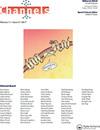金钱的目光:现实主义经济政策如何促进美国和中国的现代监督国家
IF 3.2
3区 生物学
Q2 BIOCHEMISTRY & MOLECULAR BIOLOGY
引用次数: 0
摘要
本文考察了美利坚合众国和中华人民共和国作为世界领先的经济超级大国,采取普遍现实主义的国际关系方法来维持和确保其经济实力基础的方式,以及这一目的如何转化为主要城市闭路电视(CCTV)摄像机网络的发展和扩散,作为保护这些城市作为对国民经济至关重要的经济中心的手段。两个研究问题指导论文。首先,每个国家在确保经济中心和全面保护其经济的过程中如何展示现实主义政策?其次,CCTV的使用如何有助于各州主要经济中心的安全和功能?通过案例比较,本研究考察了两国在政府意识形态取向、政府运作的闭路电视继续扩散的理由以及通过公民手段改变这种扩散的可能性方面的差异,最终得出结论:随着国际体系保持其竞争氛围,监控国家政策将继续成为国家政府维持全球权力基础的规范。本文章由计算机程序翻译,如有差异,请以英文原文为准。
Eyes on the Money: How Realist Economic Policy Facilitates the Modern Surveillance State in the USA and the PRC
This paper examines the manner in which the United States of America and the People’s Republic of China, as the world’s leading economic superpowers, pursue a generally realist international relations approach to maintaining and securing their bases of economic power, and how this purpose translates into the development and proliferation of Closed Circuit Television (CCTV) camera networks in major cities as a means of protecting those cities as economic hubs crucial to the national economy. Two research questions guide the paper. First, how does each state demonstrate realist policies in the process of securing economic centers and the overall protection of its economy? Second, how does the use of CCTV contribute to the security and functionality of major economic centers in each state? Through a case comparison, the study examines the two countries on the bases of differences in governmental ideological orientation, justification of continued government-operated CCTV proliferation, and likelihood of altering that proliferation by civic means, ultimately concluding that as the international system retains its competitive atmosphere, surveillance state policies will continue to be the norm as national government purpose to maintain bases of global power.
求助全文
通过发布文献求助,成功后即可免费获取论文全文。
去求助
来源期刊

Channels
生物-生化与分子生物学
CiteScore
5.90
自引率
0.00%
发文量
21
审稿时长
6-12 weeks
期刊介绍:
Channels is an open access journal for all aspects of ion channel research. The journal publishes high quality papers that shed new light on ion channel and ion transporter/exchanger function, structure, biophysics, pharmacology, and regulation in health and disease.
Channels welcomes interdisciplinary approaches that address ion channel physiology in areas such as neuroscience, cardiovascular sciences, cancer research, endocrinology, and gastroenterology. Our aim is to foster communication among the ion channel and transporter communities and facilitate the advancement of the field.
 求助内容:
求助内容: 应助结果提醒方式:
应助结果提醒方式:


